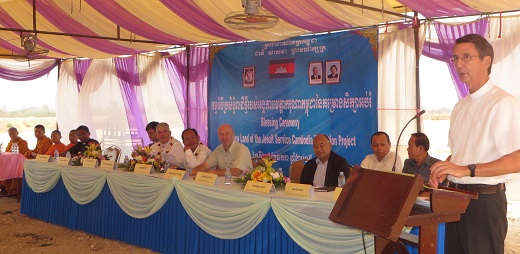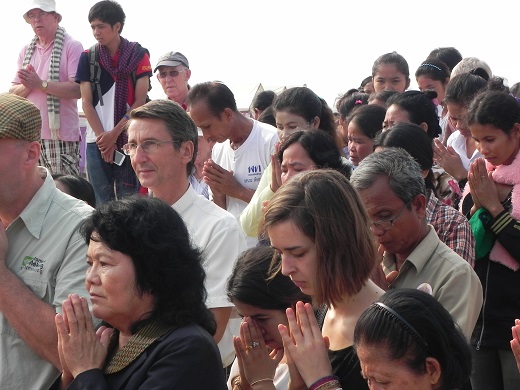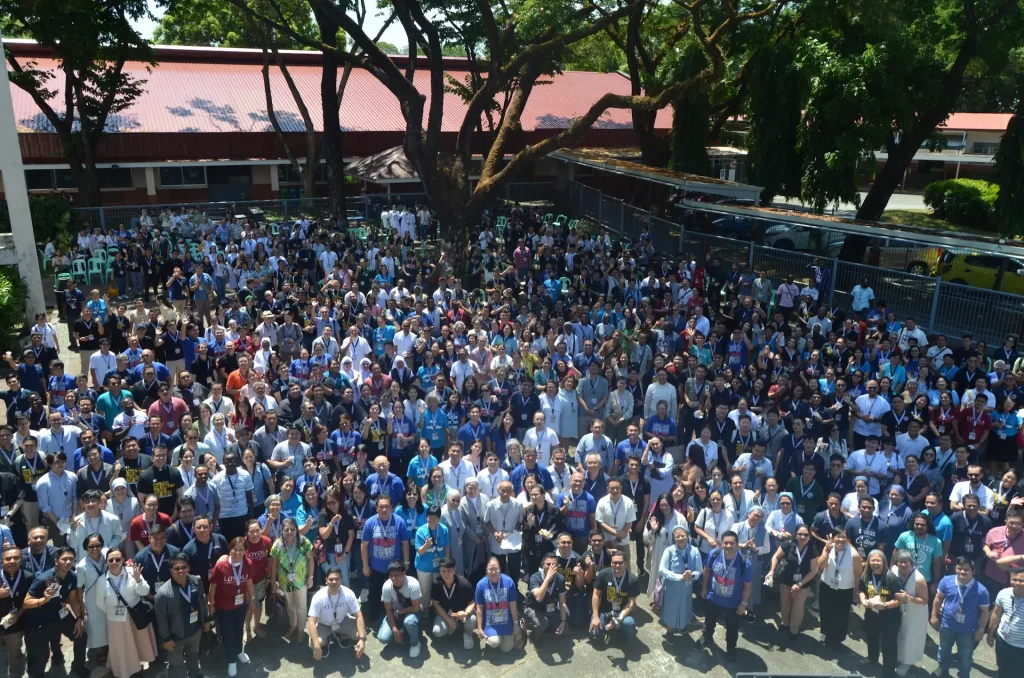An inter-religious ceremony was recently held to bless the land for the Xavier Jesuit School Project. Msgr Enrique (Kike) Figaredo SJ, Apostolic Prefect of the Battambang Prefecture in Cambodia presided with His Excellency, Mr Oum Reatrey, the Vice-Governor of Banteay Meanchey Province with responsibility for Education, at the ceremony which took place on January 29, 2015, in a temporary tent erected for the purpose on top of the land-fill just opposite the site where the foundations of the first building are already being constructed. Before the two blessing rites, Fr Oh In-don SJ, Delegate of the Korea Provincial for the Cambodian Mission and Country Representative of Jesuit Service Cambodia, explained why he chose to locate the new school project in the remote town of Sisophon in Banteay Meanchey Province. “The school project has the goal to improve the quality of education in Cambodia through the education of young people from poor backgrounds,” he said.
Battambang city was also considered but as Fr Oh said when he first announced the location of the project, “we see that Sisophon has many fewer educational opportunities and the city itself is poorer”.

Fr Evans stressed that the project could only reach its goals with the active cooperation of all the educational institutions of Banteay Meanchey Province, and thanked all the education officials, principals and teachers present as well as the Director of the Banteay Meanchey Primary Teacher Training College for their support and cooperation.

Vice-Governor Reatrey responded warmly and enthusiastically to the speeches making the people laugh by comparing and contrasting the national differences between the three Jesuits who spoke, Fr Oh, Fr Evans and Fr Hassapurti. He told Fr Evans that he would remain on 24-hour call to help solve any minor problems that might arise in the implementation of the project as he has done before.
After the speeches, Buddhist monks from the local pagoda led a procession to where the first new building will be constructed, chanted their blessing and sprinkled holy water on the site. They then moved around the central circle blessing every direction. The Catholic priests followed suit with Msgr Figaredo leading the procession and blessing of the site.

At the end of the ceremony, Msgr Figaredo thanked all involved, and remarked that “all our actions in this ceremony have been filled with meaning. They speak of tolerance, service and peace”.







